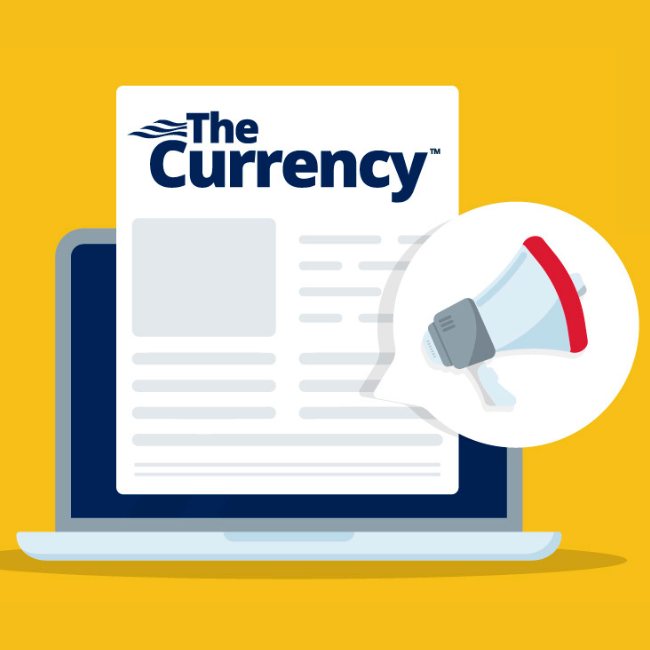The price of college admission: How paying for higher ed can start long before getting in
The price of college admission
How paying for higher ed can start long before getting in
The price of college admission
How paying for higher ed can start long before getting in


Listen
·Some parents begin setting aside money for college when prospective students are born (and sometimes even earlier) — and based on anticipated costs it’s no wonder: Annual college tuition can range anywhere from $30,780 for state schools to as much as $95,000 for private universities.1,2
But dipping into that college savings can start long before those confetti-adorned acceptance letters arrive in inboxes. As students run down the checklist of steps to apply to college, they find many of the items come with a price tag. From application fees to the expense of submitting test scores, the costs just to apply can add up quickly. And with the college admissions landscape becoming increasingly competitive, some families are doling out thousands on pricey educational consultants and tutors to help guide them through the admissions process.
Consultants can come at a cost
With some 4,000 colleges and universities in the U.S., the long task of selecting schools that are the right fit can be overwhelming for both students and families.3 Application numbers are up by 7% in 2025 — and at some elite schools, acceptances are down — and the pressure and competition to get in is fueling a $3 billion industry of independent educational consultants.4,5
What exactly does an educational consultant do? Many have backgrounds in college admissions or as school counselors, so they’re familiar with the ins and outs of the application journey. They can help students zero in on their interests and identify a range of schools that may be a good fit for them based on academic records, course of study, size, social life, and other factors. Some may provide guidance on filling out applications and essay topics, and as an objective third party, they can help minimize tension between teens and parents during a time that can be stressful.
By some estimates, more than 50% of applicants to highly selective schools hire educational consultants.6 Though some will work by the hour, more commonly these advisors are paid a flat fee of around $5,000 on average.7 For those with Ivy League aspirations, the investment can be exponentially higher: Some families have reported paying upwards of $120,000 a year for counseling services, not including test prep, to help improve the prospects of admission to an elite university.8
Read more: School rules: College savings can help fund your retirement
Add tests and tutors to the tab
When standardized test centers closed during the pandemic, many colleges and universities pivoted, making the requirement to submit SAT or ACT test scores optional to the application process. Now, with schools gradually reinstating mandatory standardized tests, coupled with the challenges of the digital format implemented for the first time in 2024, business is booming for test prep centers and tutors. Some parents are paying as much as $500 an hour for services to help their kids master testing strategies and optimize scores.9 One of the largest test prep agencies, Kaplan, reported a double-digit year-over-year increase in enrollment, attributing the jump to the new all-digital SAT format.10
Taking the requisite tests comes at a cost too. Test registration can set students back $68 for the SAT and $65 for the ACT, plus additional fees to cancel or change a scheduled date or add-on an ACT writing section.11,12 And for many, testing is not a one and done situation. Most colleges allow applicants to “superscore” — which means they can submit their highest scores by subject, even if the combined scores are pulled from across different test dates. Consequently, some students will retake — and pay the registration fee for — the tests several times to achieve the best results possible.
But if student hopefuls want the schools where they apply to receive their scores, then they may have to pay yet even more on top of what they’ve shelled out so far for tests. While the SAT does allow test takers a nine-day window after the test date to send scores to four schools for free, beyond that it costs $12 per additional report.13 And those wishing to superscore submit only partial scores from different test dates, so they can’t take advantage of the four free reports.
Read more: How to apply for a student loan
Application inflation
Application fees can range from an average of about $45 to as high as $100 per application, depending on the school.14 With the Common Application allowing students to apply to as many as 20 schools, some people could be paying upwards of $2,000 to submit applications alone.15 However, some schools may offer fee waivers to applicants who have visited or demonstrated interest.
A drop in the college bucket
While some of these up-front fees may not seem like much on their own, for some families they can accumulate to thousands, especially for those who are casting a wide net. Rather than being caught off-guard or faced with sticker shock when the time comes, families may consider earmarking money specifically to fund the admissions process and looking for opportunities to reduce front-end costs, from fee waivers to streamlining the number of applications to a balanced list of “safety,” “target,” and “reach” schools.
Read more: How to consolidate and refinance your student loans
Get financially happy
Put your money to work for life and play
1 Business Insider, “Average Cost of College Tuition,” November 12, 2024.
2 Associated Press, “College will cost up to $95,000 this fall. Schools say it’s OK, financial aid can numb sticker shock,” April 2, 2024.
3 Parents, “Is Paying for College Advising Worth the Cost?,” November 5, 2024.
4 Today, “Parents are hiring pricey consultants to help kids get into college,” March 19, 2024.
5 Forbes, “January Common App Data Show Rise In College Applications This Year,” January 27, 2025.
6 Forbes, “How To Make College Admissions A Little Less Unequal,” July 26, 2024.
7 Parents, “Is Paying for College Advising Worth the Cost?,” November 5, 2024.
8 CNBC, “Why some families will pay $500,000 for Ivy League admissions consulting: ‘It’s worth the investment’,” October 18, 2024.
9 Bloomberg, “The SAT’s Return Has Frantic Parents Hiring $500-an-Hour Tutors,” March 19, 2024.
10 Bloomberg, “The SAT’s Return Has Frantic Parents Hiring $500-an-Hour Tutors,” March 19, 2024.
11 Collegeboard.org, “Test fees,” 2025.
12 ACT.org, “Current ACT Fees and Services,” 2025.
13 The Princeton Review, “How to Send SAT Scores to Colleges,” 2025.
14 U.S. News & World Report, “Colleges With The Highest Application Fees,” January 28, 2022.
15 Commonapp.org, “How many colleges can I add to My Colleges list?,” 2022.
RO4423516-0425
The content contained in this blog post is intended for general informational purposes only and is not meant to constitute legal, tax, accounting or investment advice. You should consult a qualified legal or tax professional regarding your specific situation. No part of this blog, nor the links contained therein is a solicitation or offer to sell securities. Compensation for freelance contributions not to exceed $1,250. Third-party data is obtained from sources believed to be reliable; however, Empower cannot guarantee the accuracy, timeliness, completeness or fitness of this data for any particular purpose. Third-party links are provided solely as a convenience and do not imply an affiliation, endorsement or approval by Empower of the contents on such third-party websites. This article is based on current events, research, and developments at the time of publication, which may change over time.
Certain sections of this blog may contain forward-looking statements that are based on our reasonable expectations, estimates, projections and assumptions. Past performance is not a guarantee of future return, nor is it indicative of future performance. Investing involves risk. The value of your investment will fluctuate and you may lose money.
Certified Financial Planner Board of Standards Inc. (CFP Board) owns the certification marks CFP®, CERTIFIED FINANCIAL PLANNER™, CFP® (with plaque design), and CFP® (with flame design) in the U.S., which it authorizes use of by individuals who successfully complete CFP Board's initial and ongoing certification requirements.





